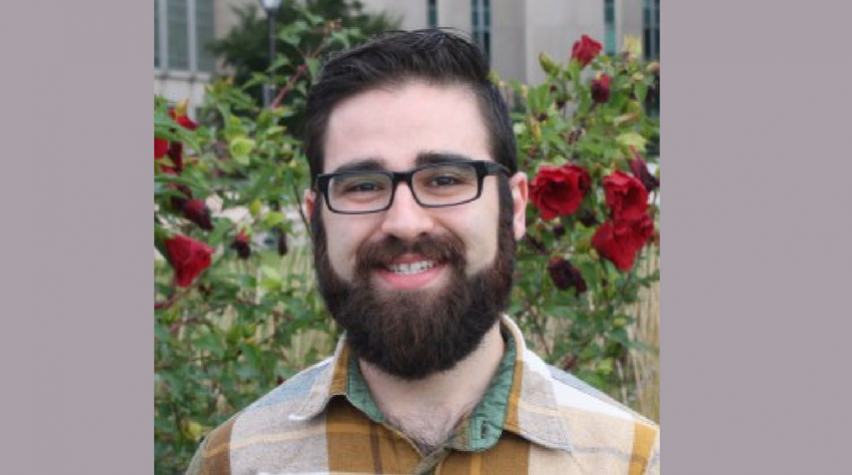
As part of AIChE's 110th Year Celebration, this series provides perspectives on the future of chemical engineering from dozens of leaders in industry, academia, and at national laboratories.
We continue with the fourth featured leader, Ashty Karim, who is a National Science Foundation (NSF) Graduate Research Fellow, conducting PhD research at Northwestern University under the direction of Prof. Michael C. Jewett. He earned his BS in chemical engineering at the University of Texas at Austin.
Following is Ashty Karim's perspective on the future of chemical engineering and synthetic biology:
Looking ahead 25 years, how do you expect your industry/research area to evolve?
I work in the field of synthetic biology and biotechnology. In the last 25 years, there has been a dramatic increase in the tools we have available to engineer and rewire biological systems. With the decrease in cost and time to read and write DNA, synthetic biology has vastly improved our research and development of organisms to produce chemicals in a timely manner.
These newfound capabilities along with the need for greener, more sustainable methods of producing chemicals and fuels will ring in an era of biotechnology. I foresee the promises of biotechnology finally becoming a reality within the next 25 years.
Specifically, we will see an increase in biotechnology products on the market for high-value chemicals, nutraceuticals, and medicines. We can also expect new biotechnological routes to carbon sequestration and recycling. With the speed at which biotechnology is expanding, we should also be ready for new and unexpected opportunities to arise.
Chemical engineering has a bright future, and it is our job as a community to stick together and inspire the next generation of engineers.
Traditional core areas of ChE expertise are being augmented by new expertise in science and engineering at molecular and nanometer scales, in biosystems, in sustainability, and in cyber tools. Over the next 25 years, how will these changes affect your industry/research area?
As a synthetic biologist and a chemical engineer, I see the next 25 years bringing an even closer union between the disciplines. Our understanding of biology is increasing exponentially, and with that there are new connections being made with the traditional core areas of chemical engineering.
This is something that we chemical engineers should embrace. We are poised to be on the leading edge of this field. With new engineering disciplines popping up — such as biomedical and biological engineering — chemical engineering has the advantage of a long history of core curricula that the field of synthetic biology can benefit from.
In addition, it is going to be more pertinent than ever to make sure that our students have the most diverse exposure to new fields, as the next 25 years will require some of the most creative solutions to global challenges.
What new industries/research areas do you foresee?
There are several new research areas I foresee appearing. With rapidly increasing abilities to control biological systems, engineers play a unique role in being able to merge biology with materials and electronics for use in energy and medicine.
You could imagine the manufacturing of new materials containing biological systems both natural and synthetic, abiotic and biotic systems working together to develop emergent material properties. These materials could manifest as diagnostics for rare diseases, sensors for our bodies, or even energy storage devices.
These fields, which seemed separated before, are beginning to intertwine in beautiful and unforeseen ways. Materials printed with circuitry and bacteria, or enzymes that can detect and react to many environmental situations, would be useful for both commercial and defense applications. For me, these are the most exciting new research areas arising and will play an important role over the next 25 years.
Taking into account the ongoing evolution of the professions — including the need for new modes of education; high standards of performance and conduct; effective technical, business, and public communication; and desires for a more sustainable future —what do you think the chemical engineering profession will look like 25 years from now?
Chemical engineering has always been one of the most versatile engineering disciplines. In 25 years, this will continue to be true. There will be electives and core classes that incorporate our new understandings of how chemical engineering is integral to manipulating biological, chemical, and material systems separately and together.
Chemical engineering will keep its solid foundation in transport, thermodynamics, and kinetics, but there will be even more applications of this powerful discipline. The factors that will change are (1) which specializations will exist and thrive, and (2) how will we adopt new practices more quickly and not let tradition keep us from evolving.
Chemical engineering has a bright future, and it is our job as a community to stick together and inspire the next generation of engineers.
 AIChE's 110 Year Celebration
AIChE's 110 Year Celebration
Celebrate AIChE's 110-year anniversary. Attend this Annual Meeting session, focusing on the future of chemical engineering through the eyes of thought leaders from industry, academia, and national laboratories.


